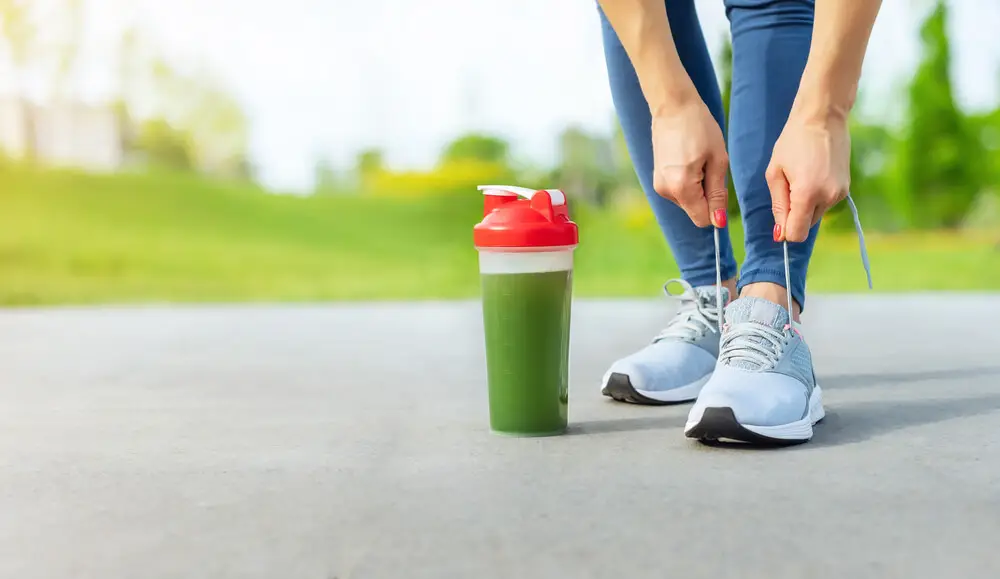Whether you’re just starting your running journey or training for a marathon, the food you eat plays a huge role in your performance. Knowing what, when, and how much to eat can help you run stronger, avoid injuries, and recover faster. In this article, we’ll break down the essentials of a runner’s diet so you can fuel your body the right way for those miles ahead.
Let’s dig into the top nutrition tips for runners, supported by research, to help you power through your runs and feel your best!
Top 7 Nutrition Tips for Runners:
1. Prioritize Complex Carbohydrates for Lasting Energy
Carbohydrates are a runner’s best friend because they’re the body’s preferred fuel source for endurance activities. When you run, your muscles rely on glycogen (stored carbs) for energy. If you’re running long distances or training for a race, your glycogen stores must be well-stocked.
- Aim to fill 50-60% of your plate with complex carbs like whole grains, fruits, and vegetables. These carbs digest slowly, providing a steady stream of energy.
- Foods like oatmeal, sweet potatoes, quinoa, and whole wheat pasta are excellent sources of complex carbs.
Pro Tip: The day before a long run, focus on carb-heavy meals to “carb load” and ensure your muscles are fueled. Research from the Journal of Sports Sciences shows that carb-loading can improve endurance by increasing glycogen storage, helping you run longer.
2. Don’t Skimp on Protein: Support Muscle Recovery
Protein is essential for muscle repair and recovery, which is crucial for runners who log many miles. After a run, your muscles need protein to repair the small tears that happen during exercise and to build strength.
- Include a serving of protein with each meal and snack. Aim for lean sources like chicken, turkey, eggs, Greek yogurt, beans, or tofu.
- If you’re on a plant-based diet, foods like lentils, chickpeas, and quinoa are great sources of plant-based protein.
Pro Tip: Research published in Nutrition & Metabolism has shown that consuming 15-25 grams of protein within 30 minutes post-run aids in recovery. Try a protein smoothie with banana, berries, and almond milk as a quick post-run option.
3. Healthy Fats for Endurance and Satiety
While carbs are the primary fuel source, fats play a secondary but vital role in supporting endurance, especially on long, slow runs. Healthy fats help keep you full, support joint health, and provide slow-burning energy, especially for long-distance runners.
- Incorporate healthy fats into your diet from sources like avocados, nuts, seeds, olive oil, and fatty fish like salmon.
- Avoid overly processed and trans fats, as these can lead to inflammation and won’t provide lasting energy.
Pro Tip: For healthy fats, add a handful of nuts to your breakfast or a slice of avocado to your lunch. A study in the International Journal of Sports Nutrition and Exercise Metabolism suggests that fats can help maintain energy during more prolonged, slower efforts.
4. Hydration is Key: Drink Before You’re Thirsty
Staying hydrated is essential for all runners. Dehydration can lead to fatigue, cramping, and heat exhaustion, derailing a good run. While drinking water is critical, balancing electrolytes is equally essential, especially on long runs where you’ll sweat more.
- Aim to drink water consistently throughout the day instead of downing a large amount right before your run.
- Consider electrolyte drinks to replenish sodium, potassium, and magnesium for runs over an hour. Electrolytes are crucial for muscle function, so replenishing them helps prevent cramping.
Pro Tip: Weigh yourself before and after a long run to gauge fluid loss, and drink enough water afterward to rehydrate. A review in the American Journal of Physiology shows that even a small amount of dehydration (2% of body weight) can significantly affect endurance performance.
5. Timing Matters: When and What to Eat Pre- and Post-Run
Timing can affect how you feel and perform when fueling your runs. Eating the right foods at the right time provides energy and supports muscle recovery.
- Pre-Run: For a light run, a small snack (like a banana) about 30 minutes before can provide quick energy. For lengthier or more intense runs, eat a meal with carbs and a bit of protein 2-3 hours before. A peanut butter and banana sandwich or oatmeal with fruit can be great options.
- Post-run: To kickstart recovery, aim for a meal or snack with both carbs and protein within 30 minutes. This helps replenish glycogen stores and repairs muscles. Greek yogurt with berries or a turkey sandwich are easy, nutrient-packed options.
Pro Tip: If you’re running early in the morning, eat something light, like half a bagel with almond butter. Research in the Journal of the International Society of Sports Nutrition shows that even a small pre-run snack can help improve performance, especially for runs longer than an hour.
6. Experiment with Nutrition During Long Runs
If you’re training for a marathon or running distances over an hour, it’s essential to refuel during your run to keep your energy levels up. Experimenting with mid-run nutrition like gels, sports drinks, or chews can help prevent “hitting the wall,” a term runners use when glycogen stores become depleted, leading to fatigue and loss of motivation.
- During long runs, try energy gels, sports drinks, or dried fruit like dates or raisins every 30-45 minutes.
- Practice eating or drinking these on training runs to ensure they sit well with your stomach.
Pro Tip: Bring small, easy-to-digest snacks on your training runs and see what works best. The Journal of Applied Physiology highlights the benefits of mid-run carbohydrates for maintaining energy during prolonged exercise.
7. Sleep and Stress Management for Optimal Recovery
While not directly related to nutrition, sleep and stress play a huge role in how well your body processes nutrients and recovers from runs. Poor sleep and chronic stress can slow down recovery and increase inflammation, which affects nutrition absorption and overall performance.
- Aim for 7-9 hours of quality sleep each night. Good sleep allows muscles to repair, replenish glycogen, and absorb nutrients effectively.
- Practice stress management techniques like meditation, stretching, or yoga to reduce cortisol levels. Cortisol, the stress hormone, can deplete muscle glycogen stores and make it harder to recover from strenuous workouts.
Pro Tip: Include a few minutes of mindfulness or relaxation exercises daily. Studies in the Sports Medicine Journal show that sleep and stress recovery improve athletic performance and reduce the likelihood of injury.
Final Thoughts: Fueling for Success
Nutrition is a vital piece of the puzzle for runners, but finding the right approach for your body takes time and experimentation. Focus on a well-rounded diet, prioritize hydration, and listen to your body. With these tips, you’ll be well on your way to running stronger, recovering faster, and enjoying every step.
Happy running, and remember that food is fuel for your journey!











